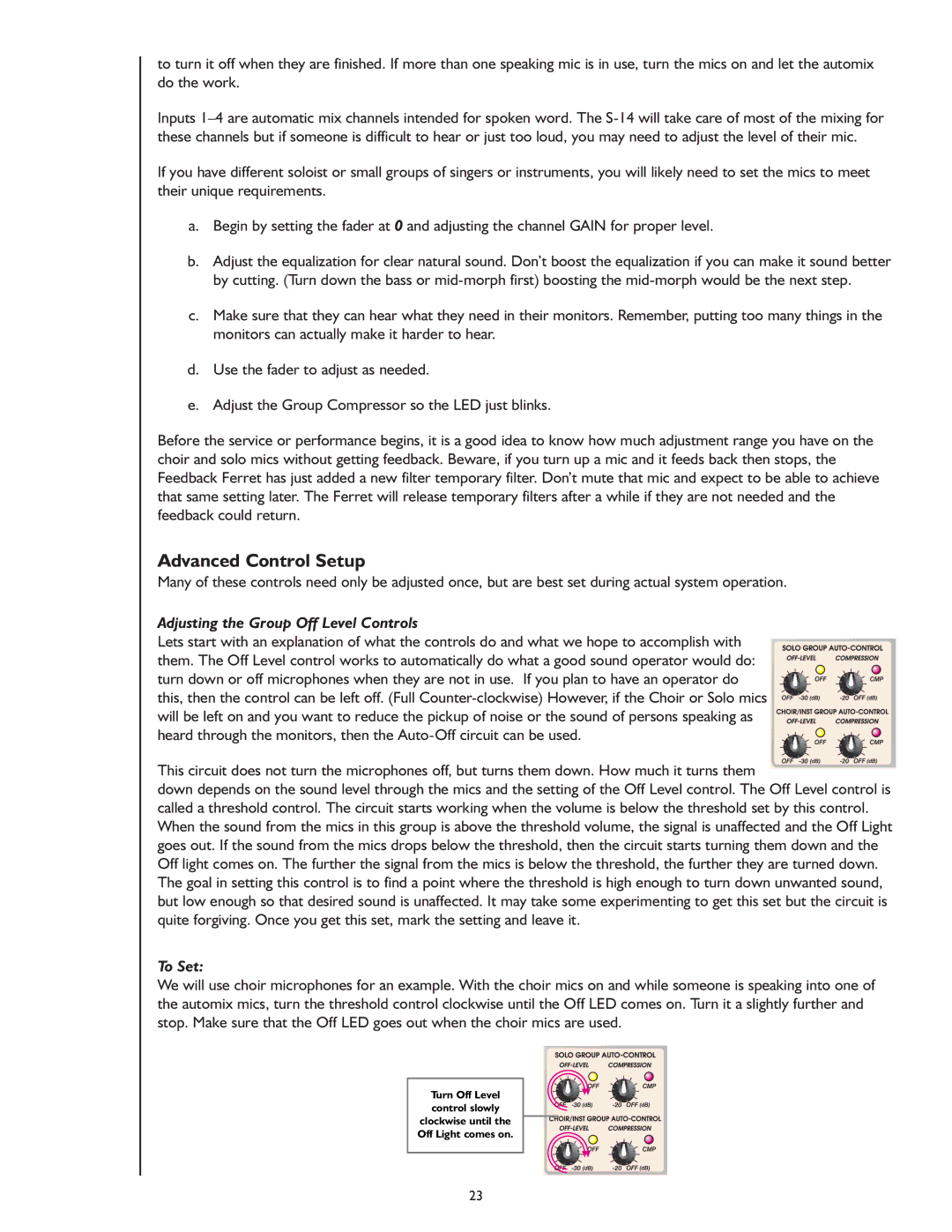
to turn it off when they are finished. If more than one speaking mic is in use, turn the mics on and let the automix do the work.
Inputs
If you have different soloist or small groups of singers or instruments, you will likely need to set the mics to meet their unique requirements.
a.Begin by setting the fader at 0 and adjusting the channel GAIN for proper level.
b.Adjust the equalization for clear natural sound. Don’t boost the equalization if you can make it sound better by cutting. (Turn down the bass or
c.Make sure that they can hear what they need in their monitors. Remember‚ putting too many things in the monitors can actually make it harder to hear.
d.Use the fader to adjust as needed.
e.Adjust the Group Compressor so the LED just blinks.
Before the service or performance begins, it is a good idea to know how much adjustment range you have on the choir and solo mics without getting feedback. Beware, if you turn up a mic and it feeds back then stops, the Feedback Ferret has just added a new filter temporary filter. Don’t mute that mic and expect to be able to achieve that same setting later. The Ferret will release temporary filters after a while if they are not needed and the feedback could return.
Advanced Control Setup
Many of these controls need only be adjusted once, but are best set during actual system operation.
Adjusting the Group Off Level Controls
Lets start with an explanation of what the controls do and what we hope to accomplish with them. The Off Level control works to automatically do what a good sound operator would do: turn down or off microphones when they are not in use. If you plan to have an operator do this, then the control can be left off. (Full
This circuit does not turn the microphones off, but turns them down. How much it turns them
down depends on the sound level through the mics and the setting of the Off Level control. The Off Level control is called a threshold control. The circuit starts working when the volume is below the threshold set by this control. When the sound from the mics in this group is above the threshold volume, the signal is unaffected and the Off Light goes out. If the sound from the mics drops below the threshold, then the circuit starts turning them down and the Off light comes on. The further the signal from the mics is below the threshold, the further they are turned down. The goal in setting this control is to find a point where the threshold is high enough to turn down unwanted sound, but low enough so that desired sound is unaffected. It may take some experimenting to get this set but the circuit is quite forgiving. Once you get this set, mark the setting and leave it.
To Set:
We will use choir microphones for an example. With the choir mics on and while someone is speaking into one of the automix mics, turn the threshold control clockwise until the Off LED comes on. Turn it a slightly further and stop. Make sure that the Off LED goes out when the choir mics are used.
Turn Off Level control slowly clockwise until the Off Light comes on.
23
